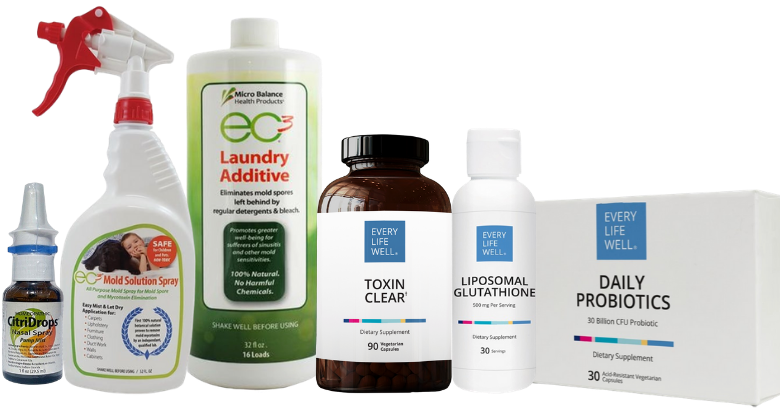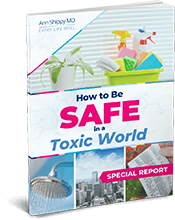What Is Your Biological Age? The Connection Between Stress and Aging
We all know someone who has exceptional health well into their 80s, 90s, or beyond.
While they are old in years, they are young at heart. Or in other words, their chronological age is high, but their biological age is lower.
Chronological age is the number of years since we were born, but biological age might be a more important measurement of the true age of the body and a predictor of disease risk.
The average American has poor health for around a decade before they die.
It is so common to be on multiple medications with multiple health conditions as we enter our golden years, that we have learned to expect it.
We associate aging with disease, and the loss of body and brain function.
But just because this pattern is common in the United States, doesn’t mean it’s normal.
It is possible to slow biological age and increase the healthy years that we have.
One important factor to consider is stress.
Keep reading to learn more about stress and its relationship to disease and biological aging.
Plus, what you can do to mitigate the effects of stress on your health.
Let’s Talk About Stress
On a simple level, stress is a physical and emotional reaction to a change in the environment.
Stress alerts the body so that the body can respond appropriately.
In many cases, acute stress is beneficial. For example, the short-term stress the body gets from exercise, or a cold plunge may benefit health. We call good stress eustress.
But negative stress, or distress, is all too common. And when it is prolonged, chronic stress leads to poor health and aging.
In the modern world, we have a lot of stress. We commonly think about stress in terms of relationships, health, work, and finances. But physical stress also plays a significant toll by keeping the body in a stress response.
Exposure to toxins, poor diet, and a sedentary lifestyle all contribute to physical stress on the body.
Stress And Disease
Unchecked, chronic stress affects the body and mind, leads to symptoms, and increases risk for disease. Just about every chronic disease is made worse in the presence of stress.
Stress is associated with:
- Heart disease
- Insulin resistance and diabetes
- Depression and mood disorders
- Addiction and substance abuse
- Weight gain and obesity
- Inflammation
- Digestive symptoms
- Poor immunity
- Decreased cognitive function
- Sub-fertility
- Irregular or painful periods
- Poor sleep
- Fatigue
- Headaches and migraines
- Morbidity and mortality
Stress And Aging
While we might think that chronic disease goes with aging, stress might be a link that connects the two.
Here’s the connection:
- First the body senses a change or a stressor in the environment.
- Then, the body produces a stress response by shifting the nervous system toward fight or flight.
- Over time, this stress response changes physiology and epigenetics in a way that accelerates aging and negatively impacts health.
Chronological age ticks on, and biological age advances more rapidly in the face of stress.
We now have a new way to measure biological age, which allows more understanding between stress and the aging process.
Previous research showed that stress shortens telomeres, the structures found on the end of chromosomes, and the length of the telomeres correlates with biological age.
Still a newer technology known as a DNA methylation clock, also called an epigenetic clock, is an even more accurate assessment of biological age.
An epigenetic clock measures chemical changes in the DNA associated with aging. Since we are all individuals, we each experience changes in this clock differently over time.
Where some people progress along with their chronological age, others age more quickly or slowly due to changes in DNA methylation.
Here’s a recap on methylation:
When a methyl group (one carbon atom attached to three hydrogens) is added or subtracted from a specific position on DNA it effectively turns on or turns off that gene.
DNA methylation is a foundational piece of epigenetics.
To learn more about this process, please read Managing Your Genes: Understanding Methylation.
Stress is just one of the factors that shapes this epigenetic expression and advances the biological clock.
In a 2021 Yale study of over 400 healthy participants, researchers used an epigenetic clock called DNA GrimAge, a superior predictor of biological age and health outcomes.
The study found that those with higher levels of chronic stress had more accelerated aging, insulin resistance, and HPA-axis signaling.
However, the study went beyond connecting stress and biological aging; it also demonstrated that those who were better at managing stress didn’t age quickly.
Specifically, two traits – emotional regulation and self-control – increased resilience to stress and slowed the biological clock.
This is good news! The study suggests that while we don’t always have control over the stress we face in life, we do have control in how we respond to stress and can choose to improve our stress resilience.
Stress Resilience
I’ve talked a lot about immune resilience on my blogs and ways to support the body in cultivating a greater resilience when faced with a virus or other pathogen. We can build resilience to stress similarly.
After a stressful or traumatic event, some people will develop depression, post-traumatic stress disorder (PTSD), a substance abuse disorder, or even a new disease.
Yet, others will recover without significant psychological or physical symptoms.
Why is this?
Some people have greater stress resilience, meaning they have a positive adaptation after a stressful event.
Resilience is an interplay between genetic, epigenetic, and neurochemical processes over time.
Increases in stress resiliency are associated with:
- Having a life purpose
- Problem-solving abilities
- Flexibility in thinking
- Mindfulness
- Acceptance
- Positive emotions
- Personal growth
- Regular exercise
- Social connections
- And more!
The great news is that resiliency can be learned through various lifestyle tools and strategies.
How To Reduce Stress and Slow Aging
When we work on building resilience to stress, we not only lower the stress that we experience daily, but we also slow the biological clock and protect our health. There are many tools and strategies to consider.
Here are some:
1. Recognize your signs of stress. Each of us experiences stress in different ways. When stress dials up, we might notice racing thoughts, poor sleep, fatigue, or a host of other symptoms. Learning to recognize the first signs of stress allows us to take a step back, slow down, and evaluate what we need.
2. Practice pre-emptive self-care. It can be hard to start practicing stress management while just trying to survive a stressful period of life. However, practicing self-care and regular stress management prior to increased stress, however, provides the tools you need to cope with the onset of stress and helps to build resilience.
Many tools work well here, including:
- Meditation
- Breathing exercises
- Yoga
- Massage
- Acupuncture
- Therapy
- Somatic therapy
- Exercise and movement
- Building good sleep habits
- Eating well
- Spending time in nature
3. Calm the limbic loop. Many of us are stuck in stress patterns where the brain perceives stress that isn’t present. Past trauma, toxin exposures, and infections are some of the root causes that may lead to this pattern. Please read this article to learn more about the limbic brain and how to break free from the limbic loop.
4. Control or let go. We may not be able to control certain stress, like a parent getting ill or losing a job, but there is plenty of everyday stress that we can choose to engage in or let go of. Letting go of stress might mean limiting social media scrolling or how much time you spend watching the news. You also have control over many of the physical stressors in your life and can choose to drink filtered water, monitor air quality, eat balanced meals, stay hydrated, use clean personal care products, and more.
5. Biohack your heart rate variability. Heart rate variability, or HRV, is the variable time between heartbeats. Improving HRV means increased resilience to stress. Heartmath is an example of a simple device you connect to an app on your phone to measure HRV. The program also teaches you techniques to improve HRV and manage stress.
6. Increase oxytocin. Oxytocin is your hormone of connection, and increased levels are therapeutic for stress. Simple ways to stimulate oxytocin production include hugging, laughing, and practicing gratitude.
7. Build social support networks. One of the biggest predictors of wellness as we get older is our social support. Spend time with friends and cultivate new friends. It helps to build stress resiliency and you’ll have a network of people to rely on during periods of increased stress.
8. Turn to nutrition/Natural supplements Start with a nutrient-dense Paleo diet. While good nutrition from food is foundational, we might need more support during times of higher stress or when recovering from stress.
Magnesium, B vitamins, and adaptogenic herbs are supportive. Every Life Well Stress Manager is a great example of a combination formula designed to calm the body’s stress response. Glycine is an amino acid that also has calming and relaxing effects.
9. Seek help. If you feel overwhelmed, burnt out, or experience physical symptoms of stress, please work with your Functional Medicine doctor, therapist, or other qualified practitioner for guidance and support.
Asking for help is good self-care.
The link between stress and accelerated aging is compelling, but the opposite is also true.
By calming the body, spending more time in a relaxed state, and building effective resiliency to stress, you can slow your biological clock, support your health, and prevent the diseases that are associated with age.
It is possible to get better with age!
References
- http://www.sciencedaily.com/releases/2021/12/211206220043.htm
- https://www.ncbi.nlm.nih.gov/pmc/articles/PMC8627511/
- https://www.ncbi.nlm.nih.gov/pmc/articles/PMC4703633/
- https://pubmed.ncbi.nlm.nih.gov/27100966/
- https://www.ncbi.nlm.nih.gov/pmc/articles/PMC5843978/
- https://www.ncbi.nlm.nih.gov/pmc/articles/PMC8745417/
- https://www.ncbi.nlm.nih.gov/pmc/articles/PMC2921311/
- https://www.ncbi.nlm.nih.gov/pmc/articles/PMC6366976/













